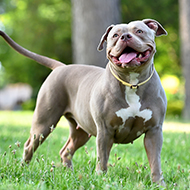BVA publishes CMA guidance for practices
BVA says its guidance will allow practices to take positive steps ahead of a proposed formal investigation.
The British Veterinary Association (BVA) has released guidance for veterinary practices, which it says will support them with addressing the Competition and Markets Authority’s (CMA’s) concerns.
The guidance particularly focuses on the CMA’s concerns about transparency and consumer choice.
It has been designed in response to the government authority’s provisional concerns, which it set out on 12 March. The CMA’s review of the veterinary profession raised concerns about the transparency of veterinary care, particularly in relation to practice ownership and pricing of services.
In response to these provisional concerns, the BVA has offered key recommendations to support veterinary practices with compliance.
It recommends that practices engage in open, honest conversations with clients about their veterinary fees at an early stage. This could involve displaying a price list of the most common procedures, and presenting clear information about the payment options that are available.
The BVA has advised that practices provide more clarity on their ownership, as well as the ownership of their associated services. This comes after the CMA found that four of the six large corporate groups were not changing the branding of independent practices they acquired.
Veterinary surgeons should proactively offer prescriptions to clients, if clinically appropriate, and discuss the different dispensing options available to them.
Finally, the association says that practices could work to normalise the principle of contextualised care into their culture.
Contextualised care refers to the concept that appropriate and proportionate care should be tailored to the needs of both the client and their animal. It states that owners should collaborate with veterinary surgeons on their pet’s care, and that this should not be considered a lower standard of care.
BVA says that following the guidance will enable practices to take positive action ahead of CMA’s proposed formal investigation.
Dr Anna Judson, BVA president, said: “Vet teams have been under intense scrutiny since the Competition and Markets Authority launched its initial review. BVA continues to work hard to ensure the proposed CMA investigation is informed by full understanding of the myriad challenges facing the profession.
“However, increased transparency, particularly around fees and practice ownership, is a specific area where practices can get on the front foot and take positive action today. BVA’s new guidance provides clear recommendations to help the profession rebuild trust with clients around the value of veterinary care.”
The full guidance can be found here.
Image © Shutterstock



 A scheme that helped owners of XL bully dogs with the cost of neutering has closed to new applications due to high demand.
A scheme that helped owners of XL bully dogs with the cost of neutering has closed to new applications due to high demand.